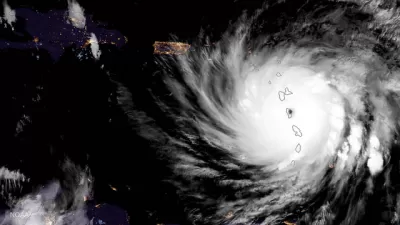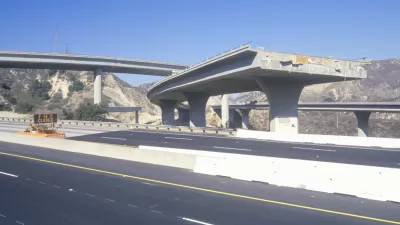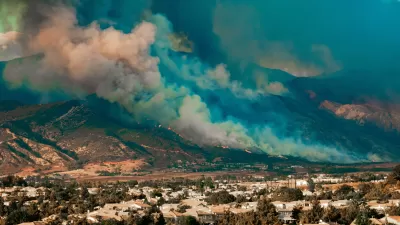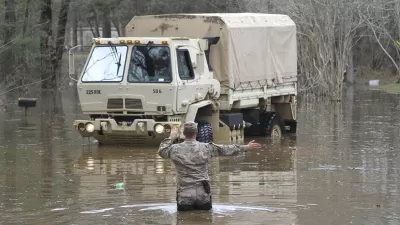Climate change might not allow the relief from the pandemic that many have been hoping for as the country enters the summer months, as evacuations during the hurricane, tornado, and fire seasons will take on new elements of risk.

Hurricane season officially began on June 1, adding another layer to a world full of concern. Forecasters have predicted an active hurricane season. Two articles published on June 1 explored the risks associated with the onset of hurricane season during the Covid-19 pandemic.
James Bruggers and Amy Green write for Inside Climate News about the efforts of Florida officials to prepare for extreme weather events and educate the public as the coronavirus drastically shifts calculations about how to respond to risks.
There's now a chance for one disaster to layer upon another. Many lives could be lost: first, from powerful winds, storm surges and flooding, and then through the spread of the coronavirus in cramped public shelters following mass evacuations. Evacuees might pass the virus to friends and relatives who take them in, or get infected themselves in those new surroundings.
One of the most concerning sources of potential confusion, according to the article, are questions about how to evacuate during a pandemic—people might choose to stay home instead of risking exposure to the coronavirus. "Even without a pandemic, mass evacuations can be logistical nightmares, clogging freeways, causing traffic accidents and depleting gas stations of fuel,"
Another article, by Dan Goldberg and Brianna Ehley, places hurricane season in context of other seasonal environmental threats, like tornado season and fire season.
"Officials from Florida to Missouri are hurriedly rewriting their disaster plans, worried that crowding large groups of evacuees in shelters could spread coronavirus during what’s expected to be a busy hurricane and tornado season," according to that article.
"Though President Donald Trump sees the summer as a time of economic revival, emergency management officials fear a terrible combination of natural disasters could lead to a fresh spread of the coronavirus — and that the pandemic could, in turn, set back their work," add Goldberg and Ehley.
The pandemic has added a massive layer of complexity to resilience planning, because no one in the United States has planned for an emergency in the midst of pandemic before.
FULL STORY: Hurricane Season Collides With Coronavirus, as Communities Plan For Dual Emergencies

Planetizen Federal Action Tracker
A weekly monitor of how Trump’s orders and actions are impacting planners and planning in America.

Maui's Vacation Rental Debate Turns Ugly
Verbal attacks, misinformation campaigns and fistfights plague a high-stakes debate to convert thousands of vacation rentals into long-term housing.

Restaurant Patios Were a Pandemic Win — Why Were They so Hard to Keep?
Social distancing requirements and changes in travel patterns prompted cities to pilot new uses for street and sidewalk space. Then it got complicated.

In California Battle of Housing vs. Environment, Housing Just Won
A new state law significantly limits the power of CEQA, an environmental review law that served as a powerful tool for blocking new development.

Boulder Eliminates Parking Minimums Citywide
Officials estimate the cost of building a single underground parking space at up to $100,000.

Orange County, Florida Adopts Largest US “Sprawl Repair” Code
The ‘Orange Code’ seeks to rectify decades of sprawl-inducing, car-oriented development.
Urban Design for Planners 1: Software Tools
This six-course series explores essential urban design concepts using open source software and equips planners with the tools they need to participate fully in the urban design process.
Planning for Universal Design
Learn the tools for implementing Universal Design in planning regulations.
Heyer Gruel & Associates PA
JM Goldson LLC
Custer County Colorado
City of Camden Redevelopment Agency
City of Astoria
Transportation Research & Education Center (TREC) at Portland State University
Jefferson Parish Government
Camden Redevelopment Agency
City of Claremont





























